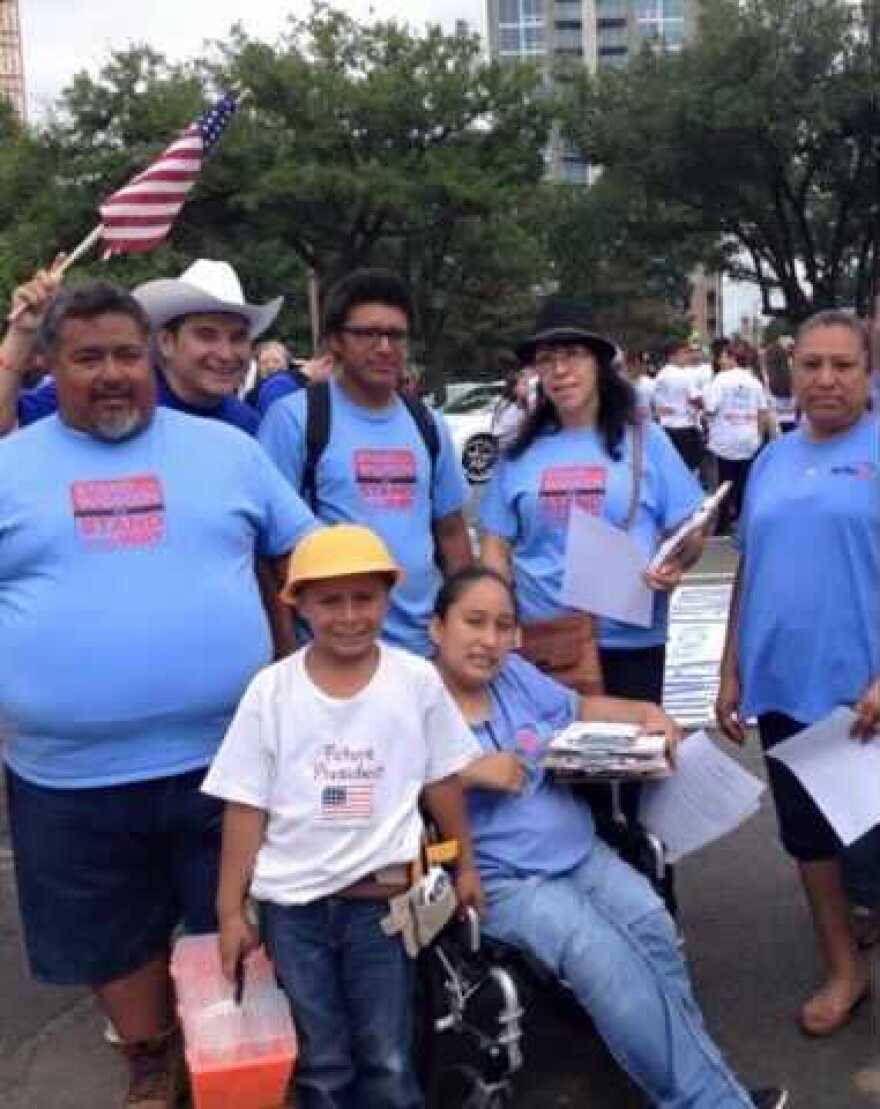Este artículo también está disponible en español en La Noticia.
Silvia Sánchez and her husband left behind their loved ones and their life in Mexico 25 years ago, hoping to save their daughter Jessica.
She was born with spina bifida, a birth defect of the spinal cord that causes paralysis and other symptoms like bowel and urinary incontinence, says Jessica’s mom, Silvia Sánchez.
“They didn’t give her more than three months to live,” her mother said.
The Sánchezes moved to the United States without legal documentation and settled in Charlotte in 1996 when Jessica was just 11 months old. At first, they paid for her medical bills out of pocket. The family found relief when Shriners Hospital for Children in Greenville, South Carolina, covered Jessica's expenses until she turned 18.
“In the system’s view, she is an adult and independent. But to us, she is still a child because her needs never ended,” Silvia Sánchez said.
Being undocumented and not having a Social Security number means Jessica Sánchez she doesn't qualify for federal disability benefits. This also keeps Jessica from qualifying for most private health insurance. Silvia Sánchez says even if her daughter did qualify, they couldn't afford it.

“She needs diapers, wipes, catheters and all her medications, which are expensive,” she said.
When Jessica was 15 and qualified for Deferred Action for Childhood Arrivals, or DACA, her condition worsened. Not knowing if she’d survive an upcoming surgery, she told her parents to hold off on applying. DACA shields young immigrants like Jessica who were brought to the U.S. illegally, as long as they stay in school, work, and have a clear criminal record.
When Jessica felt healthy enough to start the DACA application process, former President Donald Trump announced that he was ending the program. That was in 2017.
Then, after a June 2020 Supreme Court ruling and a handful of other court decisions, U.S. Citizenship and Immigration Services started taking applications for DACA again in December. So, after a long wait, Jessica is now able to apply for DACA.
If accepted, her DACA status would allow her to go to college and become a professional Spanish interpreter. It’s a job she could do virtually or with little physical effort. This gives her a chance to get a job with health insurance.
“We're almost done gathering the money for her application,” Silvia Sánchez said.
Jessica’s father makes barely enough to pay the bills. Her mom is her main caregiver. Money is tight, so Silvia Sánchez is running a raffle and selling homemade Mexican food to raise money for the $410 application fee and the $85 fingerprinting fee.
Jordan Forsythe is an immigration attorney in Charlotte. She says she’s hopeful that the Biden administration will streamline the process, making it easier for “dreamers” like Jessica to apply.

“It has been very difficult for all of our clients: employment-based, family-based, as well as deportation defense," Forsythe said. "The Trump administration has been extremely active in dismantling what was left of a barely functioning system.”
On Nov. 14, a federal judge rejected the last attempt by the Trump administration to eliminate DACA. Applications were once again accepted three weeks later. In a recent court filing, Citizenship and Immigration Services reported more than 30,000 people applied for DACA between mid-November and the end of December. Of those, 2,714 of them were first-time applicants. Only 174 of those new applicants were approved during that time period. USCIS hasn't yet released new data for 2021.
Not only is DACA back up and running, but President Biden already has introduced legislation overhauling U.S. immigration laws. If passed by Congress, DACA recipients could be among the first to receive permanent legal status. These changes are expected to increase the demand for immigration attorneys like Forsythe.
“We got a lot of calls and a lot of consultations, and we still have some that are scheduled out, we're still meeting with people that are first-time applicants,” she said.
Silvia Sánchez says Biden's immigration plan is like "a light at the end of a dark tunnel" for immigrant families like her own.
The next step, she says, will be to hold the new president accountable so his promises become actions.





